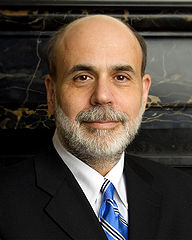By Edward Zelinsky
Public pension plans should not invest in private equity deals. These deals lack both transparency and the discipline of market forces. Private equity investments allow elected officials to assume unrealistically high rates of return for public pension plans and to make correspondingly low contributions to such plans. This is a recipe for inadequately funded pensions, an outcome good for neither public employees nor taxpayers.

In this low return environment, public defined benefit pension plans generally assume that they can earn annual investment returns in the vicinity of 8%. Such aggressive return assumptions allow governors and legislators to authorize smaller tax-financed contributions to such public pensions on the theory that anticipated investment gains will fund the retirement benefits promised to public employees.
A primary defense of this practice is that plans’ assumptions should reflect long-term experience. From this vantage, the current low interest rate environment is an historic anomaly. For the long run, the argument goes, public pension plans will earn higher returns.
Whatever the theoretical merits of this approach, it is troubling in practice, an invitation to push into the future the problem of inadequately funded public pension plans. That problem exists today and needs to be confronted today, as the Baby Boomer cohort retires in unprecedented numbers and places corresponding demands on public and private retirement plans.
A second defense of high assumed rates of return is that public pension plans can earn aggressive gains through so-called “alternative” investments such as private equity partnerships. Publicity about Mitt Romney’s IRA has focused attention on the often lucrative results obtained by at least some private equity investors. Many public pension plans have effectively become addicted to private equity deals and their promises of outsized investment returns.
It is, however, doubtful that these promised returns are generally obtained by the private equity industry or that such returns are obtained on the scale sought by public pension plans. Private equity is, by definition, private. Much of the good news we hear about this industry comes from the industry itself. Since there are no active markets for these investments, investors in private equity deals are ultimately dependent upon valuations by the sponsors of these deals.
In a recent paper, Professor K.J. Martijn Cremers of the Yale School of Management concluded that private equity investors have in the last 10 years done no better than investors in the stock market. Others, such as Professor Steven Kaplan of the University of Chicago, disagree.
At the end of the day, private equity arrangements are unwise investments for public pension plans. Such investments are not subject to the discipline of organized and transparent markets. There is not good independent verification that these investments are performing as advertised. Instead, there is a classic Lake Wobegon effect where every private equity promoter claims to be performing as the next Warren Buffett or David Swenson.
This lack of transparency serves the immediate political interests of elected officials whose short time-horizons extend no further than the next election. These officials can accept the self-serving claims of private equity promoters, mollify taxpayers by contributing less to public pension plans, and leave to their successors the problem of pension funding shortfalls when promised returns are not obtained.
For the long-run, it is better to have truth and transparency in public pension funding. This means significant reductions of assumed rates of return, and concomitant increases in pension contributions or significant curbs on future pension accruals — or some combination of increased contributions from taxpayers and slower benefit accruals for public employees.
Today, private equity investments provide cover for unrealistically high rate of return assumptions for public pension plans. These unrealistic assumptions allow elected officials to promise the pension equivalent of a free lunch: valuable retirement benefits for public workers but only modest contributions by taxpayers. Public pension plans should not be chasing the extreme returns promised by private equity investments. Taxpayers and public employees deserve better.
Edward A. Zelinsky is the Morris and Annie Trachman Professor of Law at the Benjamin N. Cardozo School of Law of Yeshiva University. He is the author of The Origins of the Ownership Society: How The Defined Contribution Paradigm Changed America. His monthly column appears here.
Subscribe to the OUPblog via email or RSS.
Subscribe to only business and economics articles on OUPblog via email or RSS.
View more about this book on the ![]()
![]()



Recent Comments
There are currently no comments.